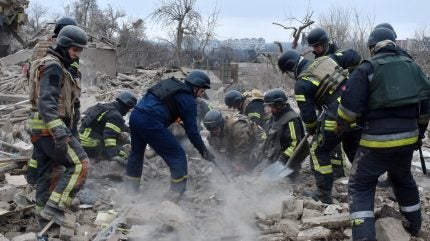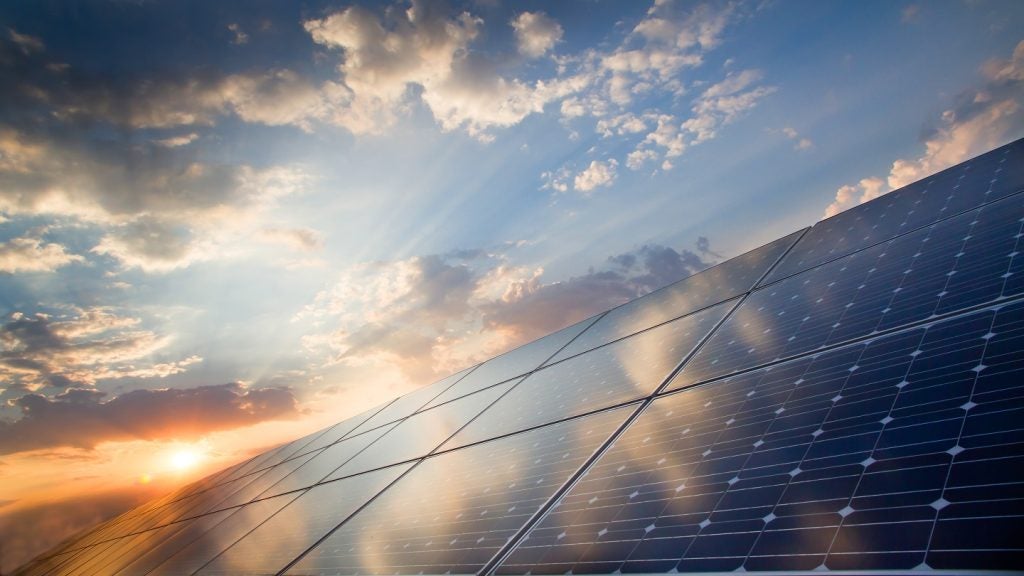
Russia has targeted Ukraine’s energy grid with fresh waves of drone strikes, prompting power outages across Odesa and Mykolaiv on 25 March and deepening concerns among Ukrainians.
Drone strikes caused “damage to the energy infrastructure”, Oleh Kiper, head of the regional military administration, said on Telegram. “There is no electricity supply to part of Odesa. All emergency services are working.”
DTEK, Ukraine’s top energy provider, warned that electric transport is not currently operating in Odesa.
Air raid signals also sounded across Kyiv, Kharkiv, Kherson, Dnipro and Mykolaiv, RFE/RL reported.
Ukraine’s Ministry of Defence said air defences destroyed eight out of nine drones launched by Russia, which is “purposefully shelling Ukraine’s energy system by all possible means”.
“After the recent massive shelling, Russian attacks caused disruptions from energy supply and heat supply, but thanks to restoration works, significant impact on the power system’s operation was successfully avoided,” Ukraine’s Ministry of Defence tells Power Technology’s sister publication Energy Monitor.
How well do you really know your competitors?
Access the most comprehensive Company Profiles on the market, powered by GlobalData. Save hours of research. Gain competitive edge.

Thank you!
Your download email will arrive shortly
Not ready to buy yet? Download a free sample
We are confident about the unique quality of our Company Profiles. However, we want you to make the most beneficial decision for your business, so we offer a free sample that you can download by submitting the below form
By GlobalData“Falling debris” from the Iranian-made Shahed drones sparked a fire at high-voltage power facilities in Mykolaiv, city mayor Oleksandr Sienkevych said on Telegram.
Outages over the past week have been “extremely severe”, according to Peter Dickinson, UkraineAlert editor at the Atlantic Council.
“Ukraine's second city, Kharkiv, with an approximate wartime population of over a million people, was without electricity and water for over 24 hours and continues to experience very limited supplies,” Dickinson tells Energy Monitor.
How is Kyiv defending Ukraine’s energy grid?
“Protection of energy facilities is one of the Ukraine Defence Forces’ priorities”, Ukraine’s Ministry of Defence says. “In the conditions of Russia’s barbaric attacks, several levels of protection have been placed around the power system and critical infrastructure. Measures include the creation of structures to protect against drone and missile debris.”
This latest bombardment illustrates Moscow’s strategic targeting of Ukraine’s energy grid.
Last Friday (22 March), Russia launched its biggest strike on Ukrainian energy since the invasion, after which officials in Kyiv reported that more than one million civilians were without power.
Polish grid operator PSE said it supplied Ukraine’s energy grid with 300MW of power following the incident. Romania and Slovakia have also come to Kyiv’s aid.
Following Russia’s invasion, the EU and Ukraine linked their electricity grids to ensure Kyiv could receive emergency power if Russian attacks caused outages.
“Ukraine has worked with international partners to bolster air defences at energy facilities – but there is still a very large deficit in systems,” Dickinson adds. “There are simply too many energy facilities and too few air defence systems. Energy facilities are also large targets that cannot be effectively shielded, so it is very difficult to provide effective defences. In practice, fully fortifying energy facilities is impossible.”
Volodymyr Kudrytskyi, CEO of Ukraine’s state power operator, Ukrenergo, claimed Russian attacks have inflicted roughly $100m (Hrv3.93bn) in damage to the energy grid over the past three days – amplifying concerns over the costs of Ukraine’s reconstruction.
Russia’s targeting of Ukrainian energy has ramped up in recent days following the fatal terrorist attack on a concert hall in Moscow last Friday (22 March), which left at least 139 dead.
Putin linked the men who perpetrated the attack to Ukraine, despite Islamic State group (IS) extremists announcing they were behind it.
Such a military strategy is typical if malign, according to Wilson Jones, defence analyst at GlobalData.
“In any war, you target your enemy's infrastructure, and hitting electrical grids means military industry and transport grinds to a halt,” Jones tells Energy Monitor. “However, it also means the civilian population will suffer, and hospitals, schools and energy facilities are all not running up to capacity in Ukraine.”
Russia has previously faced criticism for “unlawful” targeting of Ukraine’s energy infrastructure by Amnesty International, which said such attacks constituted a “war crime”.
As Ukraine’s military looks to bolster aerial defence around energy infrastructure, Ukrenergo, DTEK and other state players will be on high alert for Russia’s next drone attacks.





